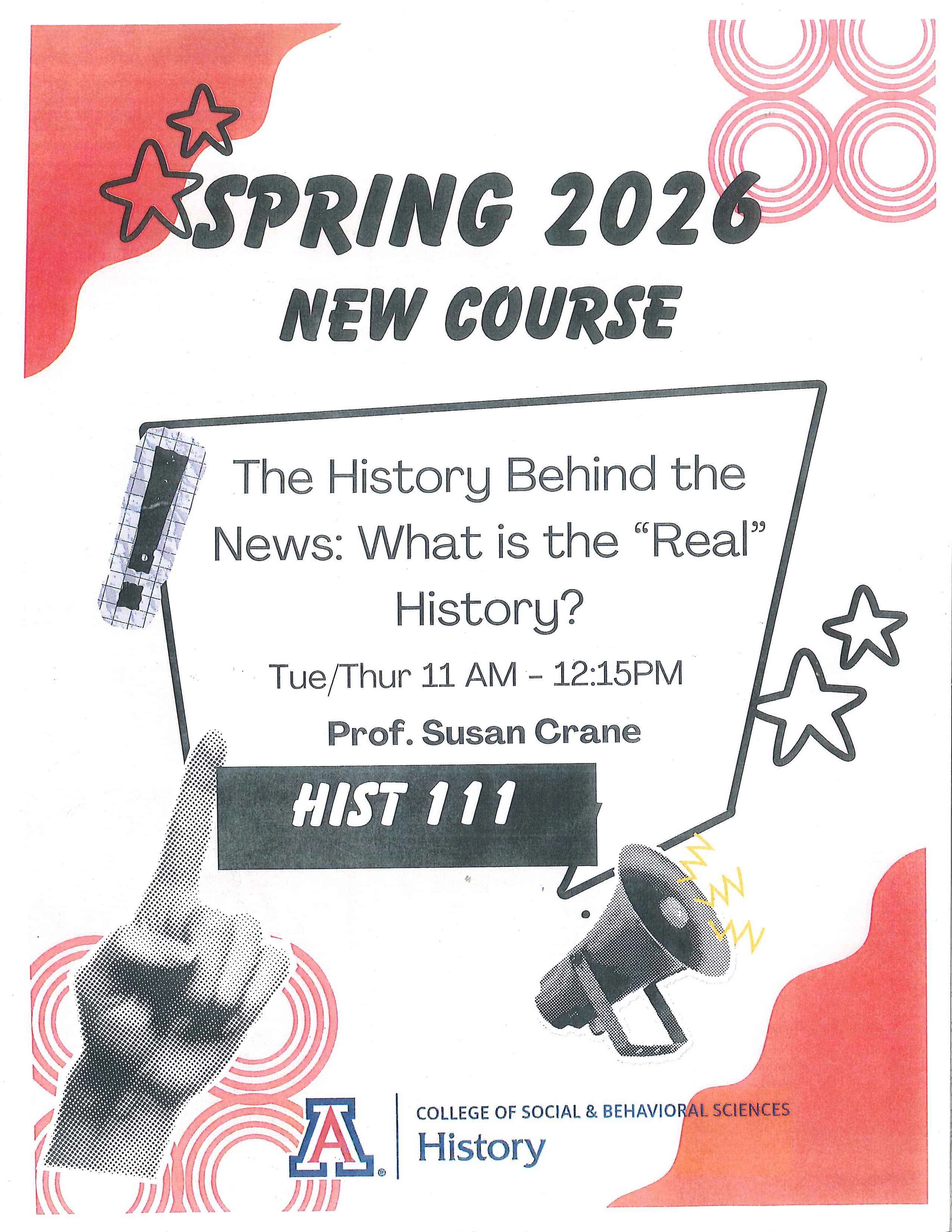Check out a few of our upcoming history courses...
Highlighted Spring 2026 Courses
HIST 111
The History Behind the News: What is the "Real" History?
Instructor: Prof. Susan Crane
T/TH 11-12:15
Every time we remember the past, we are interpreting it. Studying history helps us learn how to interpret the past responsibly. This course explores the histories behind current events. Students will have opportunities to chose relevant topics and conduct research with primary sources in History Labs.
HIST 160B2
World History to 1600
Instructor: Dr. Richard Eaton
M/W 9:30-12:45
Survey of topics in world history to 1600.
HIST 236
Indians in U.S. History
Instructor: Dr. Matthew Gilbert
Online 7w2
History of Indians in U.S. development from 1500 to the present with emphasis on relations between competing Indian groups and between Indians and whites.
HIST 280
Sports & Ethnic America
Instructor: Dr. Erika Perez
Online 7w2
This social history course examines racial, ethnic, and gender history in the U.S. through the lens of sport from the turn of the twentieth century through the present. May include themes such as: Native American boarding schools, Japanese American internment and World War II; racial segregation and integration; Cold War nationalism and steroids; immigration and Americanization; 1960s political activism; sexuality and sport; Title IX and sexism; "melting pot" themes; Native American mascot controversies; mixed-race athletes and identity.
HIST 486
The Ancient World in Film
Instructor: Dr. Alison Futrell
Online 7w2
This course will explore the ways in which the ancient Mediterranean has been represented in film, from Ben-Hur (1925, 1959) to The Mummy (1932, 1999) to HBO's Rome (2005, 2007). The course will begin with a brief introduction to the visual language of film, how the framing and editing of shots and the movement of camera convey particular meanings about character motivation and emotional overtones of human interactions. Successive weeks will then focus on ancient events and narratives as depicted in individual filmed narratives, analyzing how choices made for plot and character development affect producers' selection and interpretation of ancient material. Some specific issues to be investigated include the role of the archaeologist in connecting to the ancient past, the meaning of graphic violence (realism? Social decay?), the presentation of Egypt as a font of mystic (and doomed!) power, the Roman past as a site of voyeuristic seduction and the presentation of Roman spectacle as an emblem of ruthless imperialism. Readings will include both ancient authors in translation and modern analyses of specific films.


